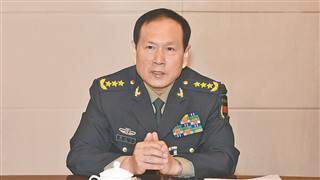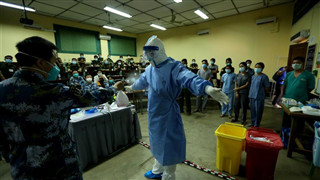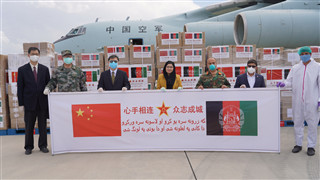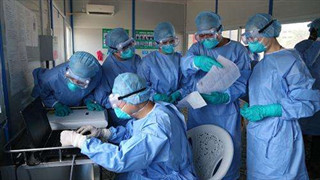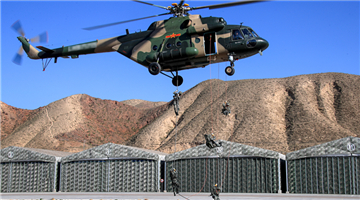
With motions in hand and suggestions in mind, Li Zongsheng, a lawyer from Liaoning province, will travel to Beijing next week for the annual plenary meeting of the National People's Congress, the country's top legislature.
It will be the third full session of the 13th NPC, scheduled to start on May 22. As an NPC deputy, Li will attend the meeting with around 2,900 other national legislators, reviewing key work reports of the central government and top judicial organs, and bringing opinions from different sectors and different regions to the top leadership.
The NPC normally starts its annual meeting in early March, but it was postponed this year due to the novel coronavirus outbreak.
The NPC is the highest organ of State power and the top legislative body in China. It supervises the government and judicial system, and determines major State issues. It also elects the president, the chief justice and chief prosecutor.
Routine tasks at an annual NPC plenary meeting include reviewing the annual work report of the central government, which customarily contains the official annual gross domestic product target; reviewing the annual work reports of the NPC Standing Committee, the Supreme People's Court and the Supreme People's Procuratorate; and reviewing the annual plan for economic and social development and the central and local budgets.
This year, legislators will have an additional task: to deliberate on the country's draft civil code. Furthermore, issues related to epidemic control and public health may be a hot topic among legislators.
"To improve healthcare and the emergency response system by the rule of law, I've done sufficient research and talked with many local residents," said Li, the deputy from Liaoning. "I plan to submit suggestions and motions on amending laws on preventing infectious diseases and wildlife protection to the NPC this time."
He said to understand and study difficulties that people are struggling with, and raise related motions or suggestions to help solve these problems is the obligation of an NPC deputy, as they come from and are elected by the people.
In 2018, a total of 2,980 people from across the country were elected as deputies to the 13th NPC. They include officials and representatives from various walks of life, including scientists, entrepreneurs, doctors, lawyers, teachers, farmers and migrant workers. They serve a term of five years.
According to the Constitution and laws on the election of deputies, direct election applies to township and county-level deputies, while deputies at the prefecture, provincial and national levels are elected by lower-level deputies. Deputies are subject to supervision by the voters in their electoral districts or the units that elected them. The election of deputies takes place every five years.
NPC Standing Committee
When the NPC is not in full session, deputies return to their regular work, hearing from the public and soliciting opinions. Based on this, they can make suggestions regarding laws, reports or formal legislative motions and submit them to the NPC when the annual plenary session opens.
The NPC Standing Committee takes charge of affairs during the periods the full session of the NPC is not sitting. It usually holds a session every two months, at which its members deliberate on laws and determine which laws should be submitted to the full session of the NPC for further review.
In general, laws on fundamental national issues will be submitted to the full session of the NPC. In the past few years, for instance, the Foreign Investment Law and the Supervision Law were adopted after being reviewed at the NPC plenary meeting.
The NPC Standing Committee also has the right to inspect whether laws are being effectively carried out, and to make sure all regulations, judicial interpretations and administrative documents in the country abide by the Constitution and existing laws.
Meanwhile, some ministers or high-level officials with the central government and the judiciary are present at the committee's bimonthly session to take questions from legislators on major issues.
Last year, the committee held training programs seven times for deputies, on subjects such as how to lift people out of poverty, how to promote people's livelihoods and how to better review budgets.
Li Zhanshu, chairman of the NPC Standing Committee, also kept in touch with deputies, holding seminars with them six times in 2019, involving 290 deputies in total, according to the NPC.
After going through more than 8,000 suggestions deputies raised during the second plenary session of the 13th NPC in March 2019, the committee said in December that it had contacted various departments, including the National Health Commission and the Ministry of Justice, urging them to give feedback to the national legislators.

